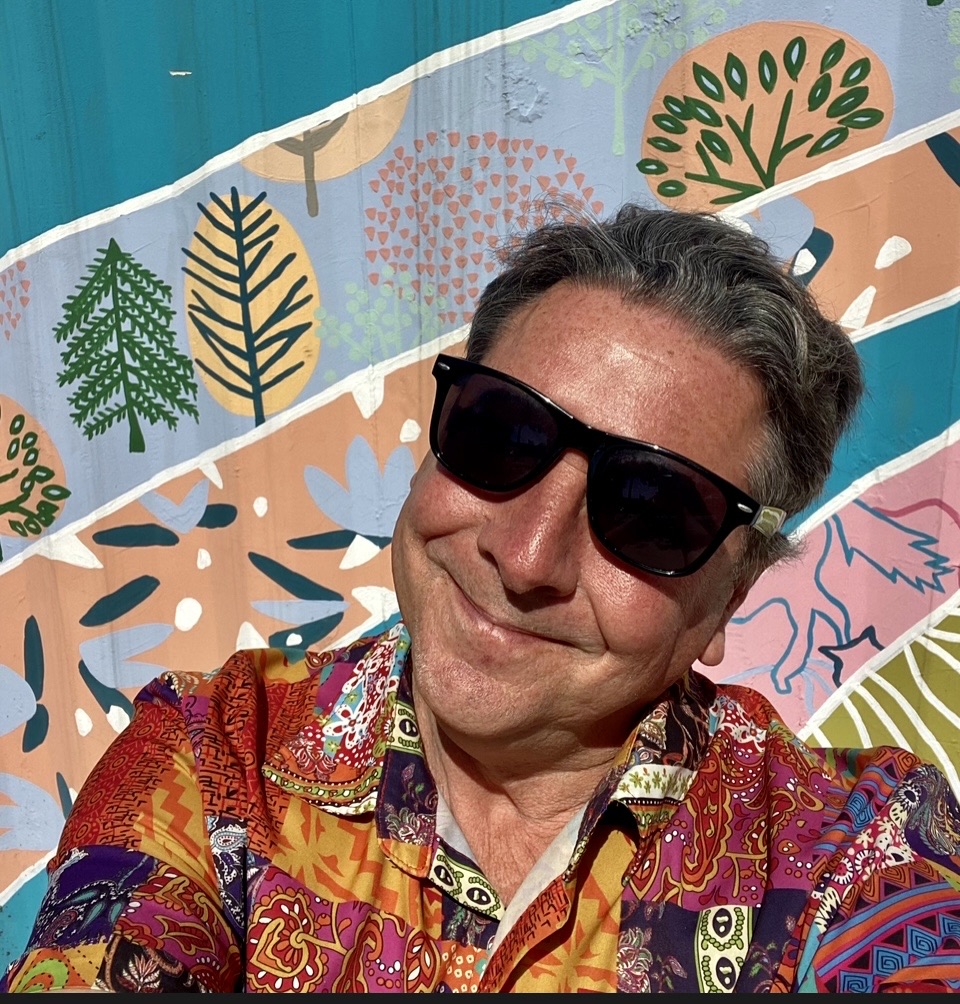Five years ago, William Martin (MTS ‘22) began work on the first in a series of semi-autobiographical novels that would soon become the San Francisco: the Luxury of Eccentricity series. The series developed out of a Facebook group Martin joined while working to pull himself out of an eight-year battle with depression that left him all but bedbound. In the group, people of all ages, gender expressions, and backgrounds traded stories, shared memories, and built a virtual mosaic of San Francisco through its many eras. Martin, who has lived in or around the city for 50 years, began sharing his experiences in what he called vignettes. Within six months he had written almost 100 vignettes and had a dedicated online audience asking for more.
And so, he began his first novel, Life in an Ivory Tower, with San Francisco the place at its center as an organizing principle. Life in an Ivory Tower recreates the “wild whimsical” world 1970s gay San Francisco, a time and place where Martin says, “a generation of young gay people created their own magical land of Oz, separated and severed from everything else.” A prelapsarian time before the start of the AIDS crisis.
“In my generation, me and my gay San Francisco friends never talked about ancestors or lineage, he continued. “We felt we were Dorothy, that our house had fallen, and we stepped out the door of that house into a technicolor land of Oz.” Painful childhoods spent in the closet were erased — or at least pushed to the background.
That’s why the second book in the series, The Runaway Bus, surprised readers by flashing back to the protagonist Trevor’s childhood experiences growing up queer in post-war American suburbia. Though it doesn’t sidestep the difficulties, marginalization, and abuse he suffered it makes room for the allies who offered encouragement and support – his own Scarecrow, Tin Man, and Cowardly Lion – who helped him on his journey to Oz.
The next three books in the series, The Red Room, The Safe Harbor of Imagination, and A Long Afternoon with a Faun, zigzag back and forth between Trevor’s childhood and his life in 1970s San Francisco where he founds a theater group, works the Gucci sales floor on Maiden Lane and struggles with coming out. Eventually, the series will include 10 books reaching all the way back to the coffee plantations Trevor’s (and Martin’s) ancestors owned in Haiti before the Revolution.
In discovering and chronicling his own history through his book series, Martin hopes to inspire readers to gather and share their own histories: breaking down barriers of race, class, age, and sexual identity the way the Facebook group did to weave together stories of place and time.
“In the Christian tradition Saint Paul invites us to gather around a ‘Table of Memory,’” Martin says, “to remember the death of Christ on the Tree. Voices over the centuries have called out to widen the circle of who gets invited to the table. Praying hands have reached and pushed for justice, equity, inclusion, and belonging so that everyone becomes welcome at the table.”
Martin entered PSR’s Master of Theological Studies program around the time he began writing The Runaway Bus, called he says, by the Holy Spirit. After his Catholic school upbringing left him feeling that God hated gay people Martin explored spirituality through a wide variety of avenues including the New Age Movement, the spiritual traditions of Bali, Brazil, and Peru, which he visited while working on a cruise ship, four years studying Tibetan Buddhism with Tulku Lama Lobsong and Shamanic Journeying sessions with an El Salvadorian Shaman who called himself Coyote. PSR’s position as part of the Graduate Theological Union’s consortium of schools allowed Martin to study across all the world’s religions and spiritual traditions which had given him spiritual strength throughout his life.
Martin says PSR also helped him find his way back to an essential part of his being, which is that of an entertainer. Instead of seeing entertainment as a lightweight, unimportant pursuit, he now views it as a gift to humanity in a world so full of suffering. “Too many people throw fun and playfulness out the window in the face of trouble because they feel the appropriate response is seriousness,” he says. Martin hopes that by re-creating the creativity and playfulness of 1970s San Francisco he can awaken that feeling in his readers, offering resilience, openness, and out-of-the-box thinking to their search for justice, God, and meaning in this world.
 William Martin is an actor, filmmaker, theologian, social justice activist, and writer currently living in Sacramento, CA though he has lived in almost every neighborhood in San Francisco and traveled the world as a cruise director. He has a Bachelor’s in English Literature, a Master of Arts and Humanities, and a Master of Science in Counselling from San Francisco State University, and a Master of Theological Studies from Pacific School of Religion. Martin launched his book series San Francisco: The Luxury of Eccentricity in 2019. The semi-autobiographical series will eventually span 10 books and travel back and forth through time, swinging from Barbary Coast saloon chandeliers to 1970s Polk Street disco beat dancing beneath mirror ball lights. Martin is currently part of PSR‘s Doctor of Ministry program, exploring the idea of putting four legs on his book series so that it may serve communities as a “table of memory” around which to gather and share stories to reweave broken threads of intersectionality.
William Martin is an actor, filmmaker, theologian, social justice activist, and writer currently living in Sacramento, CA though he has lived in almost every neighborhood in San Francisco and traveled the world as a cruise director. He has a Bachelor’s in English Literature, a Master of Arts and Humanities, and a Master of Science in Counselling from San Francisco State University, and a Master of Theological Studies from Pacific School of Religion. Martin launched his book series San Francisco: The Luxury of Eccentricity in 2019. The semi-autobiographical series will eventually span 10 books and travel back and forth through time, swinging from Barbary Coast saloon chandeliers to 1970s Polk Street disco beat dancing beneath mirror ball lights. Martin is currently part of PSR‘s Doctor of Ministry program, exploring the idea of putting four legs on his book series so that it may serve communities as a “table of memory” around which to gather and share stories to reweave broken threads of intersectionality.
